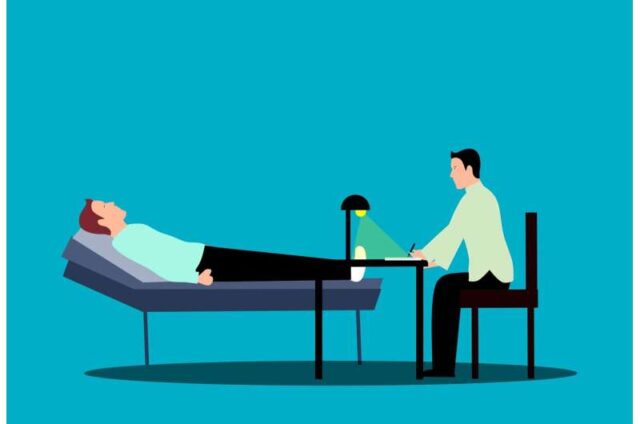Therapy for Weight Loss
Cognitive behavioral therapy (known as CBT) can be a tool used with your physician and weight loss team to align thoughts, feelings, and actions with your health goals. Change requires an overhaul of thinking, feeling, and behavior. Being overweight is a known health risk. Period. Modern lifestyles, poor eating habits, emotional eating, behaviors, thoughts, health conditions, genetics, negative life experiences, and trauma are known to play a role in becoming and staying overweight. Psychotherapy can be a important key to losing weight, and developing skills it keep it off.
Where diets are constructed to fail (typically including a goal weight and a plan of starvation with little motivation), CBT creates motivation, measures success points along the journey, and examines thoughts, feelings, and behaviors to support long term change and well-being. CBT strategies can help you shift to healthier ways of being in all life aspects. This shift is oriented for a long term, sustainable, overall healthy way of living, so results are maintained. A psychotherapist can assist you every step of the way as you move toward success. Therapy can be the additional support to move you to weight loss goals when previous attempts have failed, or even back-fired.
Unlike diets, Therapy for weight loss includes:
Goal Setting
Monitoring
Feedback and Reinforcement
Boosting Beliefs
Incentives and Rewards
Goal Setting includes long-term and short-term, observable steps that can be influenced by your action. The quest for healthy weight loss and lasting results are broken down into measurable, achievable goals. A starting goal might be to replace a sugary dessert with a piece of fruit 5 out of 7 days per week. The goal is a small step which can be measured, assessed, achieved, acknowledged, or refined. These small goals add up over time. You can compare this process to winning a race. An athlete needs to train and build muscle, work on timing and cadence, and develop daily habits to increase strength and speed before the athlete will cross the winning finish line with ease. These small, daily steps (or goals), build big results.
Monitoring your progress helps maintain motivation and avoid pitfalls. When you have a measuring and monitoring system in place, previously unidentified barriers suddenly appear. You may begin to notice situations, events, specific times, or activities that are associated with habits that do not support your health goals. Through CBT psychotherapy, you can learn to self-monitor. Therapy for weight loss can inform your awareness of physical and emotional cues that are in conflict with your health goals increases. You may have noticed these in the past and wondered why you don’t have enough “willpower,” or perhaps you judged yourself as being “needy” or “weak.” Instead of resorting to this negative, critical self-talk, you can use that increased awareness to strategize. Much of success is preparation, and failing to prepare is preparing to fail. When you are aware of your cues, you can develop strategies to get over those barriers with success. You are developing a powerful tool for lifetime maintenance.
Your psychotherapist should be one part of your weight loss team. Feedback coming from your physician should measure your overall physical health such as weight, blood pressure, cholesterol, or any health condition you are managing. Your physician can clear you for increased exertion of exercise as your health and ability improves. You may also work with a nutritionist to ensure meeting your medically determined dietary needs. This feedback from your team can help you make any adjustments needed, and CBT psychotherapy can support the needed processing to line up your thoughts, feelings, and behaviors. This external feedback can provide extra motivation to keep your progress goals challenging, ambitious, and realistic.
We need to believe to achieve. CBT psychotherapy can uncover hidden hope and boost your realistic beliefs that you can do it. You can improve your health. As you set small, achievable goals and experience success, your confidence and belief in success is strengthened. As you strategize and overcome situations that were previously barriers to your goals, you know you can achieve your larger goals with continued efforts. It feels good to succeed. CBT psychotherapy will also help you identify natural support persons and develop a social structure that can support your process and provide ongoing encouragement.
Maintaining your efforts over time require long term motivation. Rewards and incentives work, and part of CBT psychotherapy is identifying and implementing motivating ways to celebrate your success. Your healthy lifestyle, which you can maintain for life, will include learning how to reward yourself with self care and experiences.
CBT can resolve emotional barriers and process negative life events that continue to impact your overall health. Can you imagine a life where you don’t need to turn to food for emotional support? Can you imagine enjoying a meal without guilt or remorse? Can you imagine being full of energy and experiencing better health?
I invite you to start your journey to weight loss for the last time. I invite you to add psychotherapy to your supportive health and weight loss team. I invite you to challenge yourself to develop a healthy lifestyle and the tools required to maintain your results for life.



